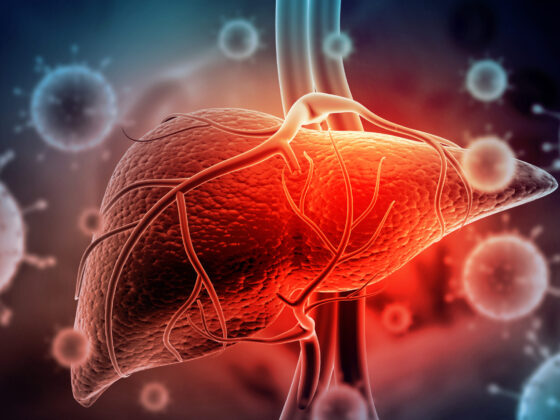-Dr. Azadeh Patel, Clinical Lead, ART Fertility Clinics, Ahmedabad

Why many people can’t have children despite wanting to
When envisioning starting a family, it is unlikely that one imagines being surrounded by medical professionals, embryologists, and support groups. However, the reality is that the ability to conceive does not always align with the desire to become a parent. According to the World Health Organization, approximately 186 million individuals worldwide struggle with infertility.
Awareness and Understanding about Infertility carries a social stigma
It is important to remember that starting a family can be challenging for anyone, so there is no need to feel alone or ashamed if you find yourself facing similar struggles. Raising Awareness and Understanding about Infertility carries a social stigma, and those experiencing it commonly report feelings of loneliness and despair. It is crucial to debunk the misconception that infertility only affects women. In fact, infertility can impact individuals of any gender equally, making it a complex and multifaceted problem with various causes. While some cases of infertility can be treated medically due to underlying conditions, such as hormonal imbalances, others may be influenced by overall health and lifestyle choices. Adopting healthier habits like quitting smoking, reducing alcohol consumption, and maintaining a balanced diet and exercise routine can improve fertility. However, even when both partners follow seemingly healthy behaviors, millions of couples still struggle with infertility.
The Impact of Infertility on Emotional Well-being
Most reproductive education focuses on preventing unintended pregnancies, which leads to
misconceptions about the ease of conception for others. The data on natural conception reveals that the chances of conceiving in any given month are relatively low, particularly for individuals in their 30s and beyond. Additionally, between 10 and 20 percent of pregnancies end in miscarriage, further decreasing the odds of having a healthy baby.
The societal discourse and stigma surrounding infertility often lead individuals and couples to blame themselves or each other for their difficulties.
Know Individuals may experience profound loss and a deep sense of failure at any moment.
On good days, the mental, social, and emotional repercussions of infertility treatment can feel overwhelming.The high value placed on having children in today culture may make couples feel like failures, not only to themselves but also to their partners, loved ones, friends, and society as a whole.
Exploring various treatment options while maintaining optimism about the possibility of conceiving andcarrying a child can take a significant toll.
The physical side effects of reproductive treatments further burden couples on their fertility journey. The mental and emotional strain of tracking cycles, adhering to doctors' orders, and going through treatment after treatment can accumulate over time, affecting both partners.
Having a Support System During the Journey Dealing with infertility is not an individual experience; it is a journey meant to be taken as a couple.
Many people experience significant mental distress, despair, and anxiety due to the weight of infertility. It is crucial to find a mental health counselor to talk to when feeling overwhelmed or exhausted, in addition to seeking support from doctors, friends, and the community. It is essential to maintain open lines of communication and support each other. Infertility already puts emotional and psychological strain on relationships, and responding with harsh communication or emotional withdrawal only exacerbates the challenges.
Struggling with infertility can be devastating to one sense of self-worth.
Negative emotions and behaviors like sadness, anxiety, anger, social withdrawal, relationship strain, and even sexual dysfunction are common among individuals facing infertility. Having someone to lean on is crucial. Whether it is a network of loved ones, a community of like-minded individuals, or professional psychological help, having support is essential to navigate the process successfully. Parenthood and the Science of Fertility Treatments Experiencing trouble getting pregnant does not mean giving up on the dream of having children. Individuals and couples facing infertility can explore fertility treatments to increase their chances of starting a family. Integrative medicine approaches, such as optimizing diet and lifestyle, taking vitamins and supplements, and incorporating herbal medicines and acupuncture, can be used alongside other fertility aids like in vitro fertilization (IVF) and assisted reproductive technologies (ART).
Various reproductive medicine options, including medication to encourage natural conception, intrauterine insemination (IUI), IVF, egg, sperm, and embryo donation, as well as surrogacy, can be utilized to address infertility.
The first step in beginning fertility treatment is to consult with a medical professional. Your medical team, supportive and knowledgeable, will guide you through the alternatives for starting a family.
While the news of infertility can be disheartening, it is important to remember that many people have found new hope and started families through fertility procedures like IUI, IVF, and donations. You are not alone, and there is support available, regardless of the treatment path you choose. Advocates and researchers are working to eliminate the stigma around infertility, and seeking help from others can bring you comfort and strength during difficult times. Infertility takes a toll on the mental, emotional, and physical health of individuals and relationships, making a strong support system of family, friends,
medical professionals, and mental health specialists crucial throughout the ups and downs of infertility treatment.











